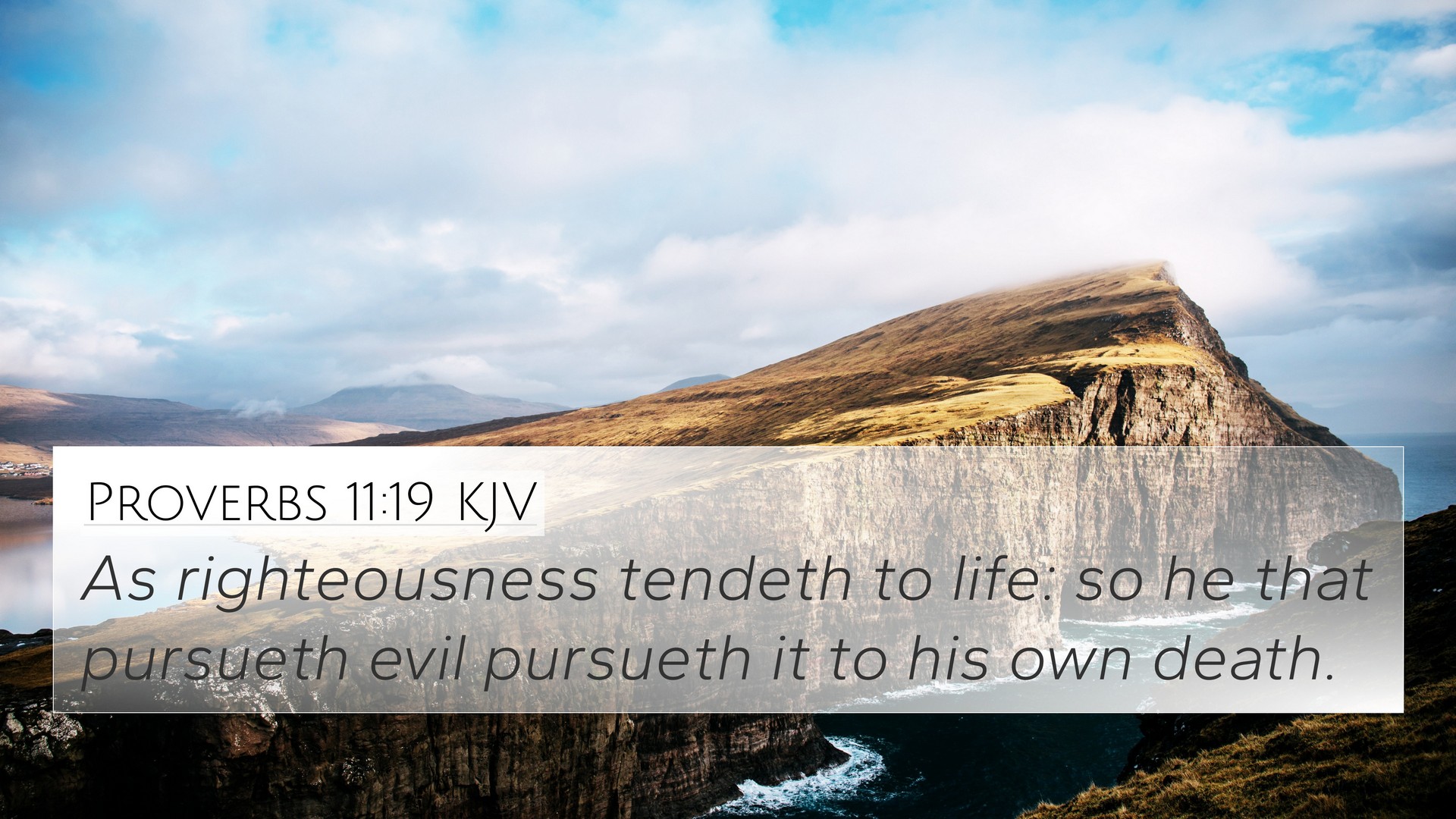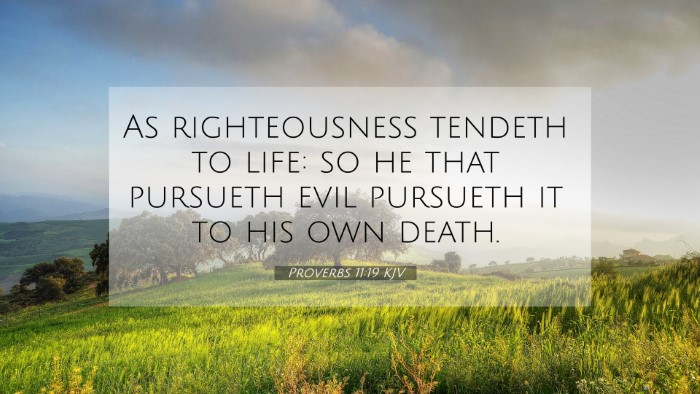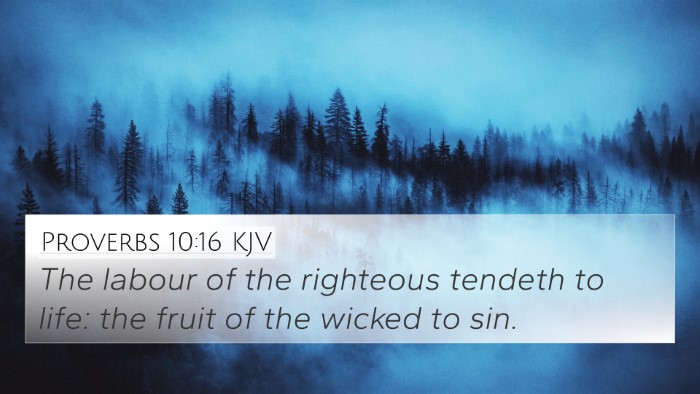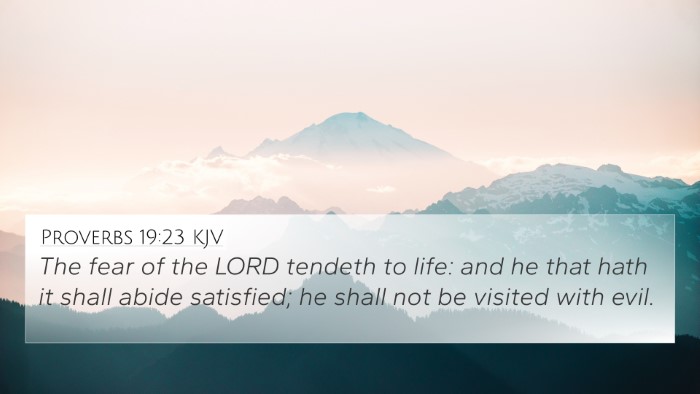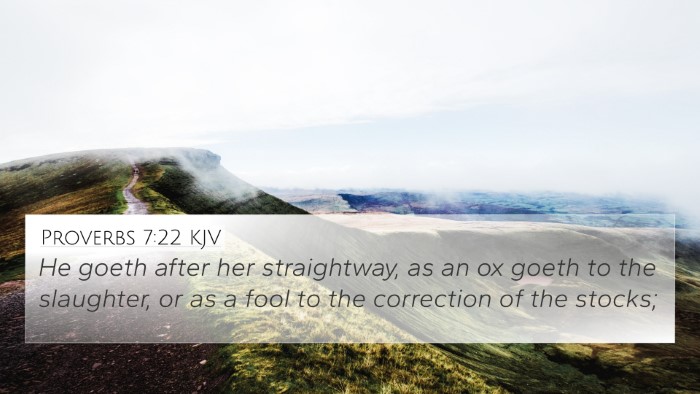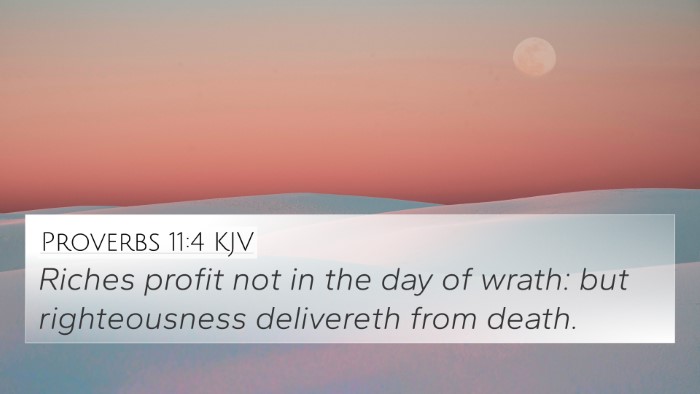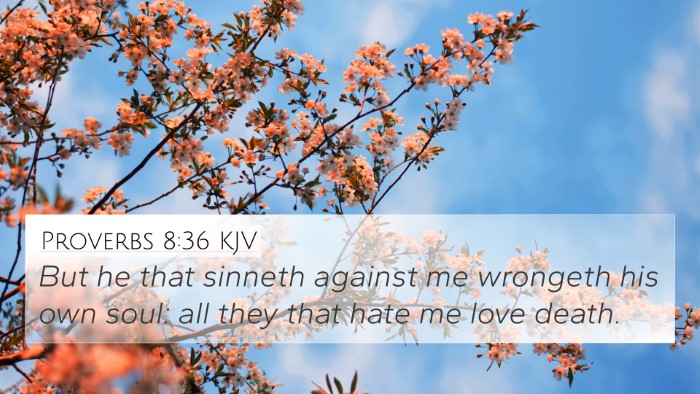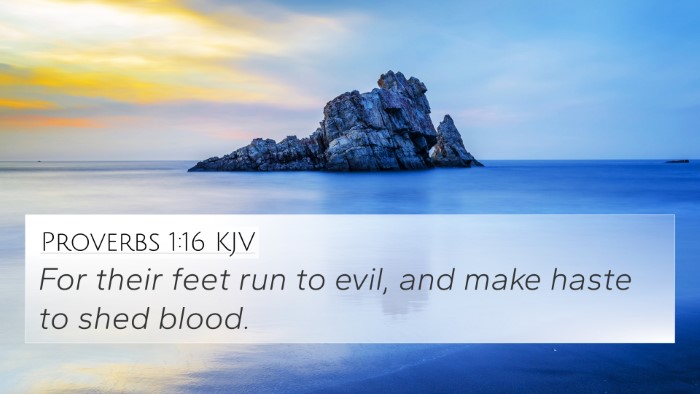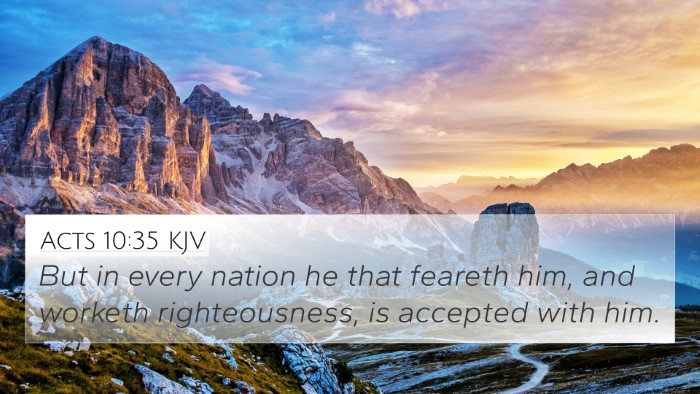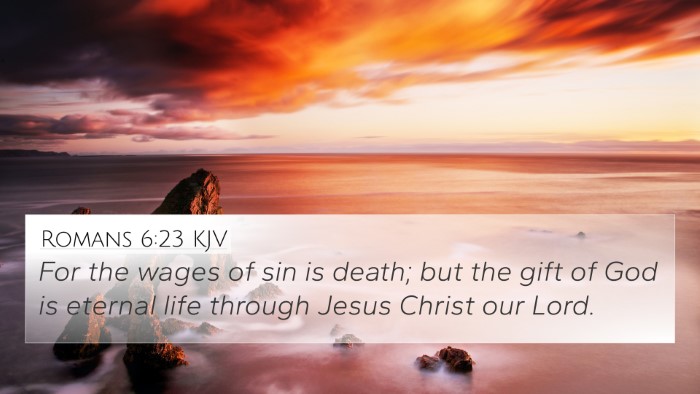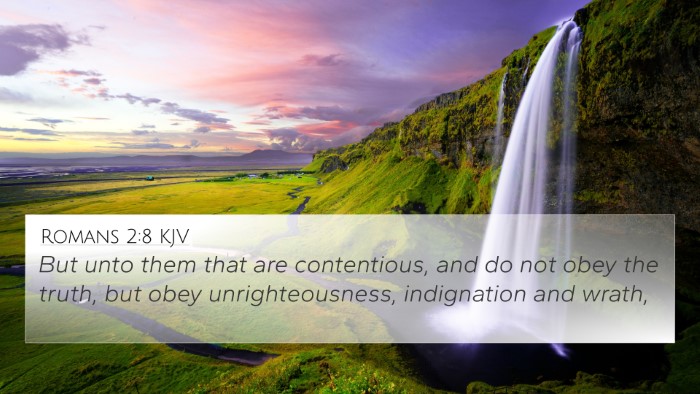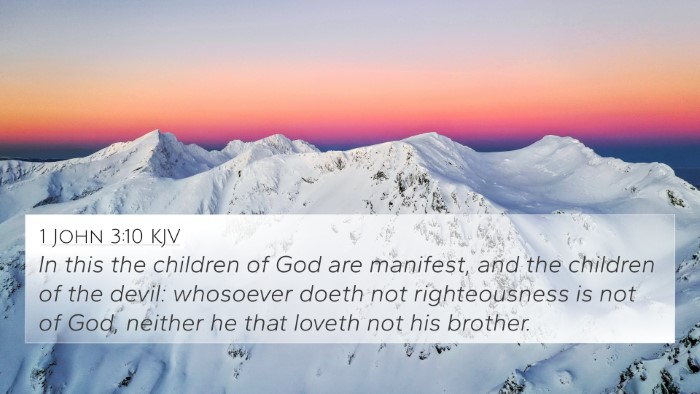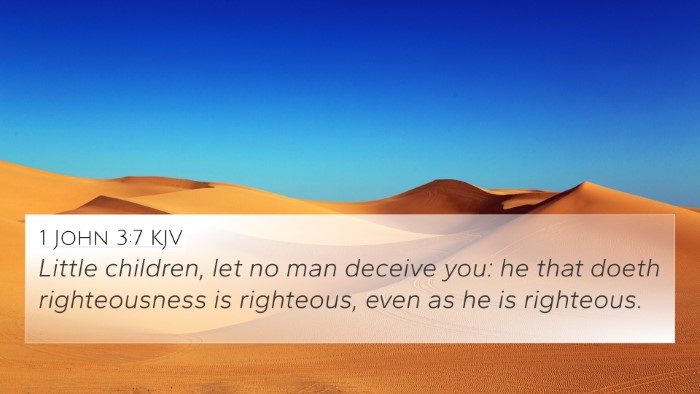Understanding Proverbs 11:19
Proverbs 11:19 (KJV): "As righteousness tendeth to life: so he that pursueth evil pursueth it to his own death."
This verse encapsulates a profound truth regarding the consequences of one's actions and the moral law inherent in the universe. The wisdom literature of the Bible often contrasts righteousness with wickedness, and this verse is no exception.
Summary of Biblical Insights
Drawing from various public domain commentaries, we can deepen our understanding of this verse:
Matthew Henry's Commentary
Matthew Henry emphasizes that the pursuit of righteousness leads to life—both physical and spiritual. He interprets “righteousness” as the state of being morally right or just, suggesting that it aligns with God’s will and promotes peace and longevity. In contrast, Henry points out that those who choose to pursue evil are ultimately chasing their own destruction, indicating that the implications of their choices are severe and far-reaching.
Albert Barnes' Notes
Albert Barnes adds to this by discussing the nature of “life” in the context of righteousness. He emphasizes that true life is found not just in an absence of physical death but in enjoying the favor and companionship of God. Barnes notes that the phrase “pursueth evil” illustrates a deliberate choice, highlighting that such choices lead individuals away from the blessings associated with living according to God’s standards.
Adam Clarke's Commentary
Adam Clarke provides a theological understanding, discussing the dangers of moral decay when individuals choose to engage in wickedness. He elucidates that chasing after evil is synonymous with chasing after death, as it separates one from the source of life—God Himself. Clarke reiterates the notion that righteousness is integral to both individual well-being and societal health.
Connections with Other Bible Verses
Proverbs 11:19 can be cross-referenced with several other scriptures that echo its themes:
- Romans 6:23: "For the wages of sin is death; but the gift of God is eternal life through Jesus Christ our Lord." This verse mirrors the contrast between righteousness and wickedness.
- Galatians 6:7-8: "Be not deceived; God is not mocked: for whatsoever a man soweth, that shall he also reap." This aligns with the principle of cause and effect in moral choices.
- Proverbs 21:21: "He that followeth after righteousness and mercy findeth life, righteousness, and honour." This verse reinforces the benefits of pursuing a righteous life.
- James 1:15: "Then when lust hath conceived, it bringeth forth sin: and sin, when it is finished, bringeth forth death." A stark reminder of the end result of pursuing evil.
- Proverbs 12:28: "In the way of righteousness is life; and in the pathway thereof there is no death." This reinforces the promise of life anew in righteousness.
- 1 Peter 3:12: "For the eyes of the Lord are over the righteous, and his ears are open unto their prayers: but the face of the Lord is against them that do evil." Highlights God's favor towards the righteous and disfavor towards the wicked.
- Proverbs 4:23: "Keep thy heart with all diligence; for out of it are the issues of life." Illustrates the importance of guarding one's intentions towards righteousness.
- Psalm 1:6: "For the Lord knoweth the way of the righteous: but the way of the ungodly shall perish." Confirms that God's oversight follows the path of righteousness.
- Matthew 7:13-14: "Enter ye in at the strait gate: for wide is the gate, and broad is the way, that leadeth to destruction, and many there be which go in thereat: Because strait is the gate, and narrow is the way, which leadeth unto life, and few there be that find it." A clear distinction between the paths leading to life and death.
Thematic Analysis of Righteousness vs. Wickedness
The thematic connection found throughout the Scriptures on righteousness and wickedness creates an inter-Biblical dialogue that invites deeper understanding through comparative Bible verse analysis. Proverbs 11:19 emphasizes the fundamental principle observed in many biblical texts: that our pursuits define our destinies.
Conclusion: Through the lens of Proverbs 11:19, we see a clear call to embrace righteousness, not only as a moral directive but also as a pathway toward life itself. The Biblical teachings reiterate the importance of this choice and its long-term consequences, encouraging readers to seek tools for Bible cross-referencing and Bible study methodologies that illuminate these connections further.
By understanding the links between these verses, readers can better grasp how the concepts of righteousness and wickedness are woven throughout the tapestry of Scripture, encouraging practical application in daily life.
